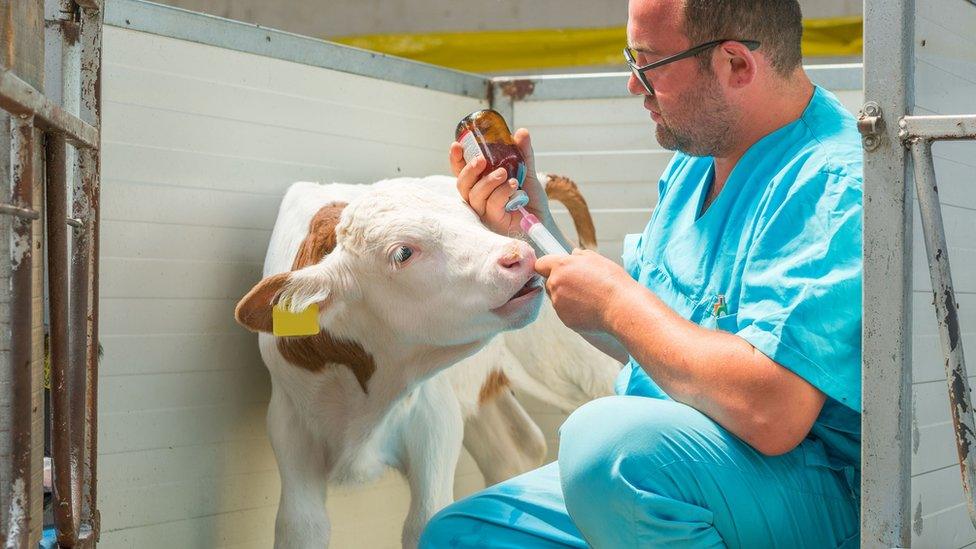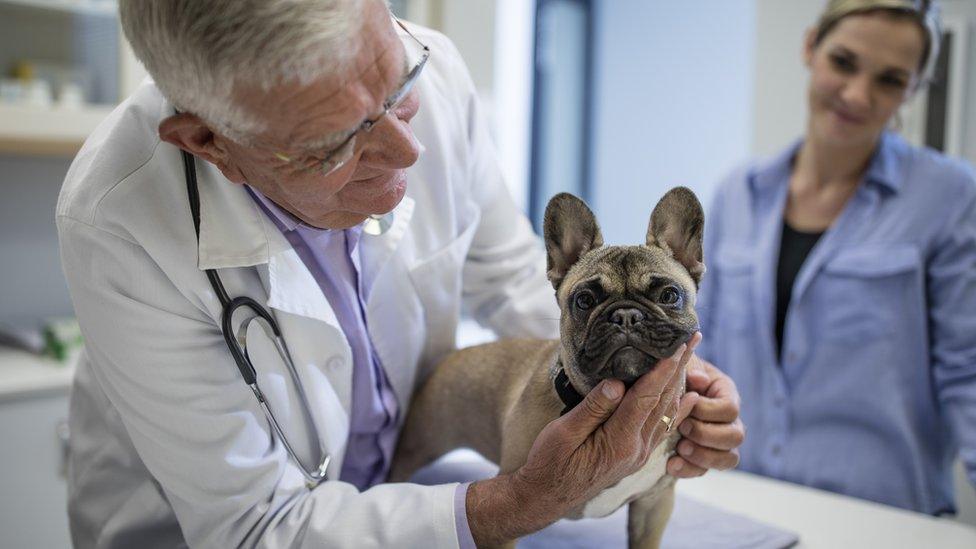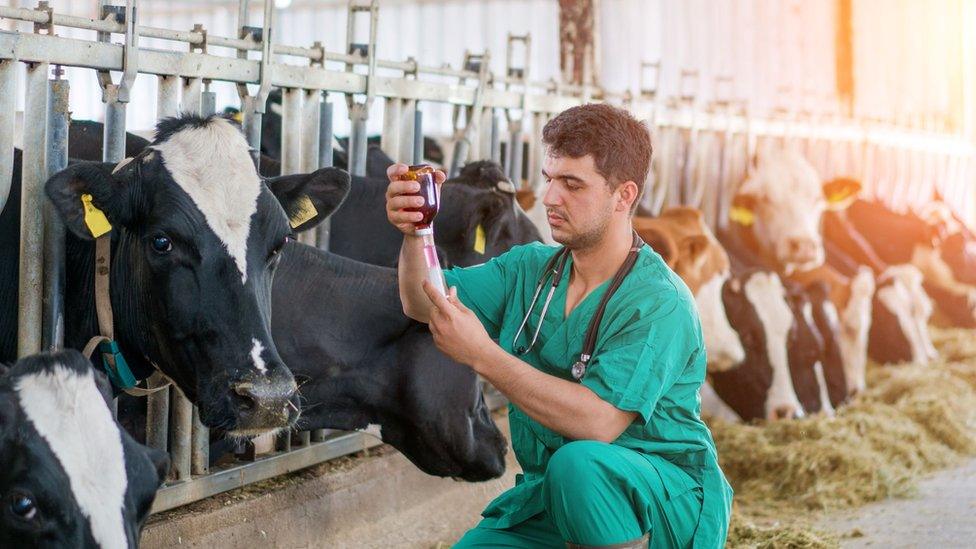Windsor Framework: Half of vet medicines could be withdrawn, Lords hear
- Published

A grace period for veterinary medicines not covered in the new NI Brexit deal will expire in 2026
Half of the veterinary medicines currently used in Northern Ireland could be withdrawn from sale unless there is a new deal with the EU, an inquiry has heard.
Human medicines were covered by the Windsor Framework, the revised Brexit deal for Northern Ireland.
That should guarantee the flow of those medicines from GB to NI.
But veterinary medicines were not part of the deal and are instead covered by a grace period which expires in 2026.
The House of Lords Windsor Framework Sub-Committee has begun an inquiry into the supply of veterinary medicines.
Industry representatives told it they want a deal similar to the one covering human medicines.
Medicines have been one of the most difficult post-Brexit trade issues in Northern Ireland.
That is because Northern Ireland has remained in the EU's single market for goods, a market which includes medicines.
However, Northern Ireland gets most of its medicines from distributors and manufacturers in Great Britain.
Under the terms of the original deal, the Northern Ireland Protocol, medicines being sent from GB to NI would have required retesting and relabelling to ensure they met EU standards.

Northern Ireland gets most of its medicine from Great Britain
The pharmaceutical industry warned that would be an unviable expense for a market as small as NI, and medicines would be withdrawn from sale.
The EU ultimately agreed to major changes including the use of a single medicines pack for the whole of the UK, including Northern Ireland.
Not 'unresolvable'
However veterinary medicines still face the prospect of needing to meet those retesting and relabelling requirements, and the risk they will be withdrawn from sale as a consequence.
Head of regulatory affairs at the National Office of Animal Health, Donal Murphy, told the Lords committee a major reason veterinary medicines were not included in the deal was EU concerns about the food chain.
He said the European Commission assumed there would be further EU/UK divergence, which meant a risk veterinary medicines, which no longer aligned with EU regulations, would enter the food chain in NI and then move through the wider EU single market.
He said while there "legitimate concerns" from the EU, it was not an "unresolvable problem" given the heavy regulation of the sector.
Meanwhile, the British Veterinary Association (BVA) NI branch president Esther Skelly-Smith told the Lords if the grace period expires without a deal, the potential consequences are "vast and severe".
"Northern Ireland would be left facing a very real public health emergency and serious implications for the farming industry as well as potentially devastating outcomes for the equine sector and companion animals unable to get the treatment they need," she said.
- Published2 February 2024

- Published19 December 2022

- Published13 December 2022
